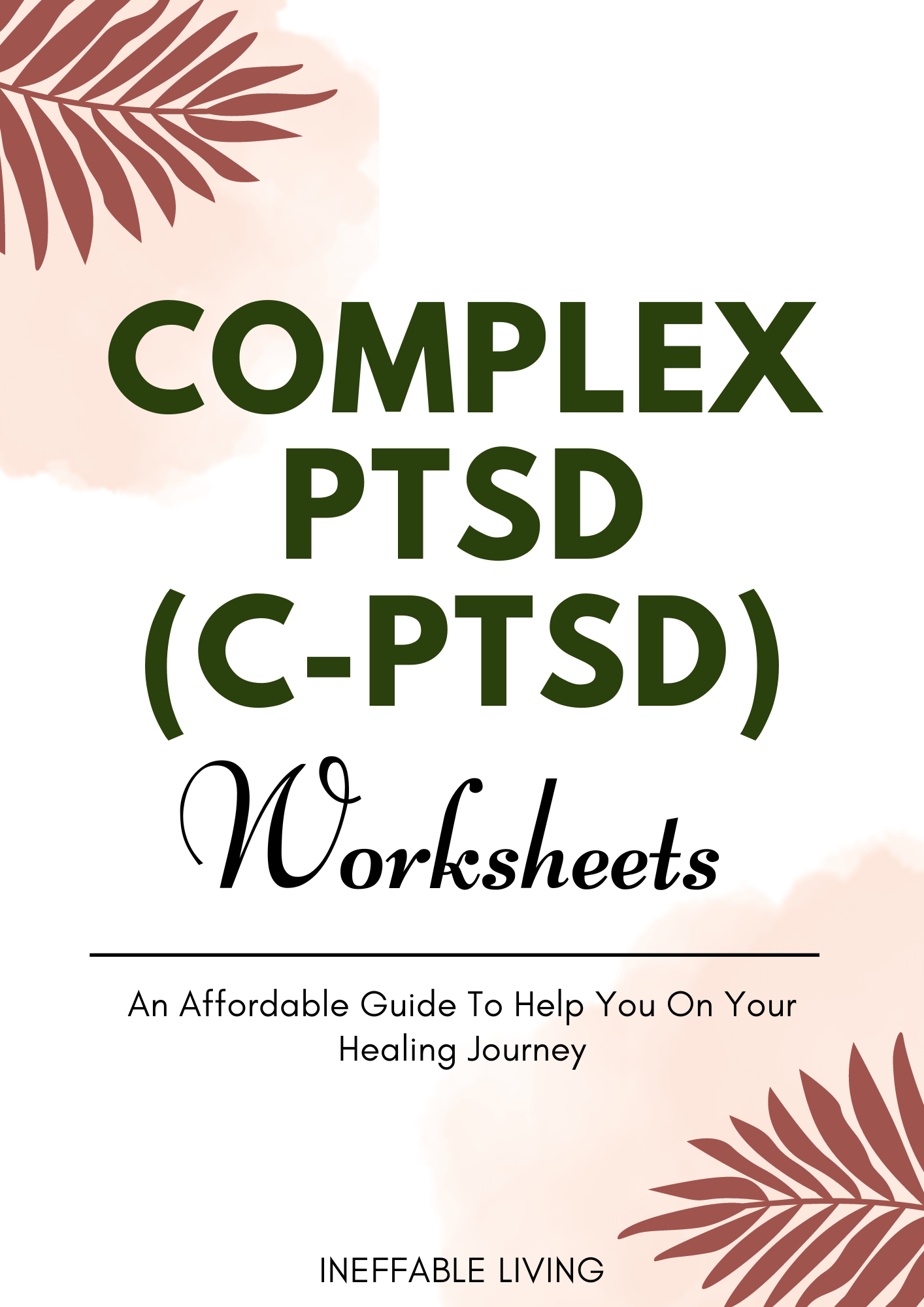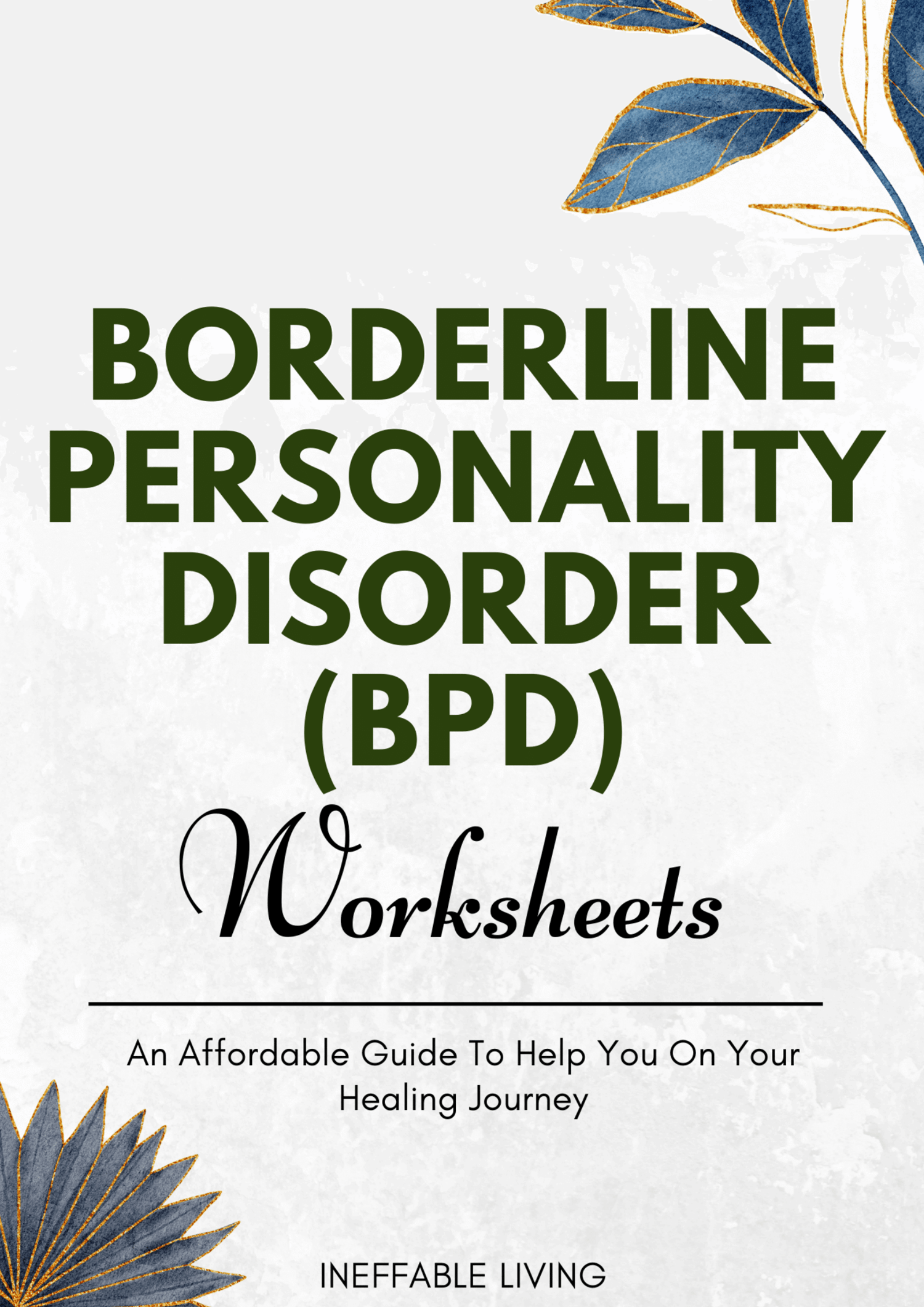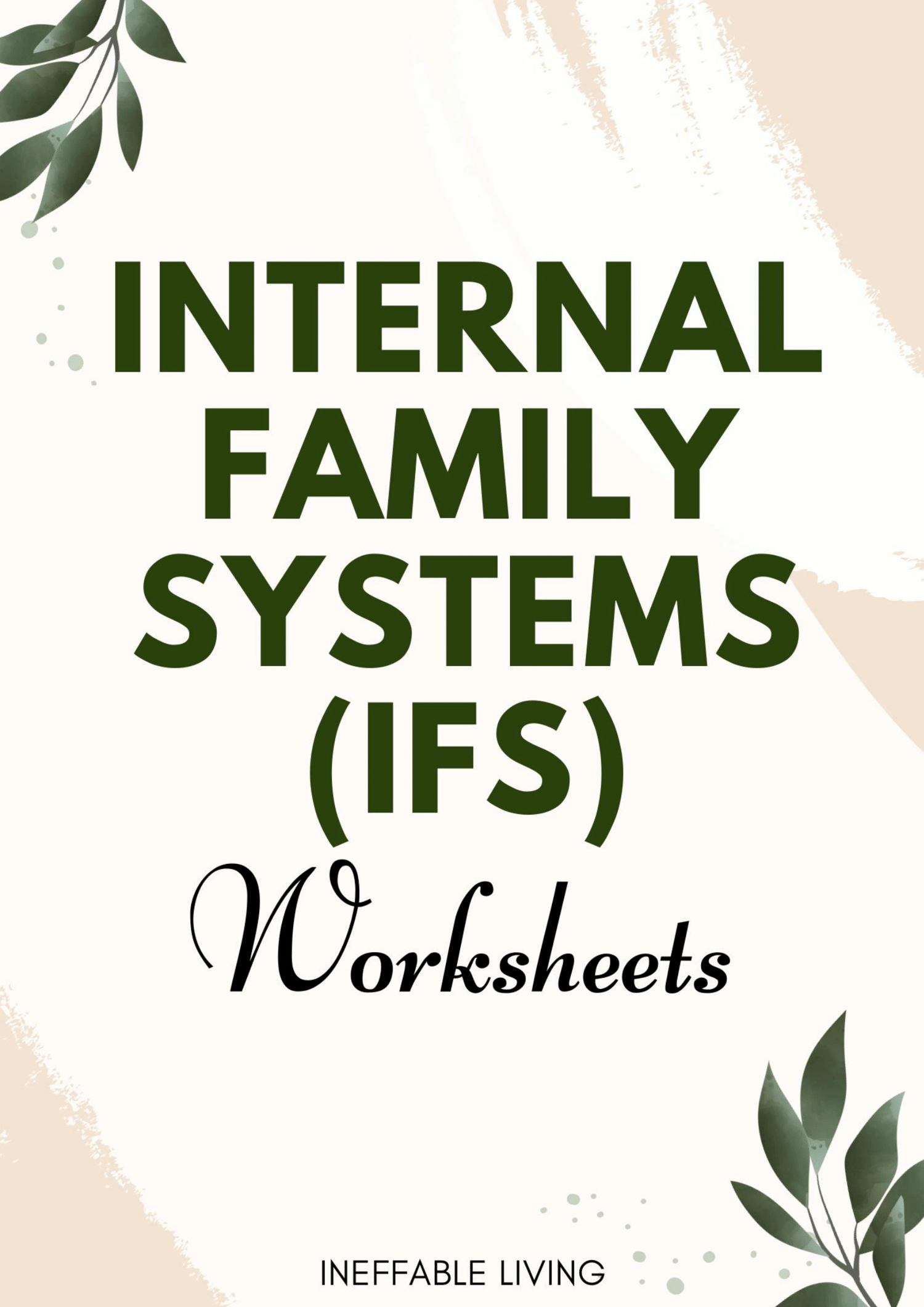Living with Borderline Personality Disorder (BPD) can feel like riding an emotional rollercoaster with no brakes. One moment you’re overwhelmed with love or fear, and the next, you’re drowning in anger, shame, or emptiness. Relationships feel intense, your identity feels unstable, and everything hurts a lot.
You’re not dramatic. You’re not broken. You’re carrying deep emotional pain — and it’s exhausting. The good news? There are ways to find balance, and worksheets can be a powerful part of your healing.
Why BPD Feels So Draining
BPD affects how you feel, think, and relate to others. It’s not “just mood swings” — it’s emotional hypersensitivity and difficulty regulating your responses.
Common experiences include:
- Feeling things too deeply, too fast
- Fear of abandonment, even in small moments
- Struggles with identity and self-worth
- Black-and-white thinking in relationships
- Sudden anger or intense sadness that feels out of control
- Chronic emptiness or self-destructive behaviors
This level of emotional intensity can wear you down. That’s why healing needs more than willpower — it needs tools.
1. Complex PTSD (C-PTSD) Worksheets
Gently process deep trauma with tools to manage triggers, rebuild safety, and regulate intense emotional flashbacks.
2. Borderline Personality Disorder (BPD) Worksheets
Find stability through emotion regulation, distress tolerance, and identity-building prompts rooted in compassion.
3. Internal Family Systems (IFS) Worksheets
Explore your inner parts, heal emotional wounds, and foster internal harmony using the IFS model in a simplified, practical format.
How Worksheets Support BPD Healing
Mental health worksheets provide structure and support when emotions feel too big to hold alone. They help you:
- Regulate overwhelming emotions with grounding techniques
- Challenge black-and-white thinking and find balance
- Reflect without judgment so you can better understand patterns
- Practice skills from DBT (Dialectical Behavior Therapy), like distress tolerance and emotional validation
- Strengthen your identity and connect to your core values
- Build healthier relationships through boundary-setting and communication tools
Worksheets give you a safe place to unpack the chaos — step by step, at your own pace.
This Is for You If…
- You’re emotionally exhausted from constant ups and downs
- You’ve been diagnosed with BPD or relate deeply to its traits
- You want tools that go deeper than surface-level advice
- You’re in therapy and want extra support between sessions
- You’re not in therapy but need guidance you can trust
You don’t have to keep feeling overwhelmed. You can start healing with tools that are gentle, structured, and made for the intensity you carry.
You Deserve Stability, Safety, and Self-Compassion
BPD recovery isn’t linear. Some days you’ll feel like you’re thriving, and others will knock the wind out of you. That’s okay. Healing is not about perfection — it’s about consistently showing up for yourself in small ways.

Read Testimonials –> HERE
FAQs
Can I use the worksheets with my therapy clients?
Absolutely! The worksheets are meant for both, personal and professional use.
The worksheets are copyrighted so you can’t resell them or upload them publicly online. But you can share them with your clients.
Can I make changes to the files before handing them down to my clients?
Absolutely! You can convert your PDF files to word documents and make changes using free tools like pdf2doc.com.
How do I know if these worksheets are right for me?
These worksheets are perfect for anyone who needs an affordable, yet effective strategies to help them increase their self-awareness and work on their own issues – alone or with their therapist.
These worksheets are not a one-size-fits-all approach and are in no way meant to imply that change is as one-dimensional as a worksheet.
So choose the techniques and suggestions that apply to you and tailor the exercises in ways that will be helpful to you.
Can I use these worksheets on my own or should I seek professional guidance?
These worksheets are designed to be helpful on their own. However, seeking professional guidance from a mental health professional can increase their effectiveness.
How do I use mental health worksheets effectively?
1. Set aside dedicated time: Find a quiet and comfortable space where you can focus on yourself without distractions. Treat this as valuable self-care time, just like you would for any other important appointment.
2. Choose the right worksheet: There are numerous worksheets available, each offering unique exercises and prompts. Consider your specific needs and goals. Are you looking to enhance self-awareness, manage stress, or improve your relationships? Select a worksheet that aligns with your current focus.
3. Read instructions carefully: Take a moment to fully understand the purpose and instructions of the worksheet. Clarify any questions you may have before proceeding.
4. Engage in self-reflection: Set pen to paper and let your thoughts flow. Don’t worry about perfection or judgment – this is your private space to express yourself authentically. Be honest with yourself and explore your emotions, thoughts, and experiences without restraint.
5. Reflect on your insights: After completing the worksheet, take some time to reflect on what you have learned about yourself. Consider any patterns or triggers that impact your mental well-being. Identify areas where you can implement positive changes or coping strategies.
6. Incorporate your insights into daily life: The true value of mental health worksheets lies in applying your newfound awareness and insights to your everyday life. Consider how you can integrate these insights into your relationships, self-care routines, and overall well-being.
When should I see a therapist?
These worksheets are designed to help you better understand yourself, your distress, and your difficulties.
You can use it in conjunction with therapy or as a stand-alone guide to manage your distress.
These worksheets can be considered a low-intensity intervention. They’re perfect for those who are struggling with mild to moderate issues.
In mental health, mild to moderate symptoms are those that are severe enough to be distressing to you, but moderate enough that you can still manage most of your daily activities.
If you feel very overwhelmed by any of the exercises in these worksheets, this might be a sign that your symptoms are too severe for you to do the work by yourself.
A therapist will help you at your own pace and provide support and encouragement throughout the process.
Do you have more questions? Check this page –> FAQs


